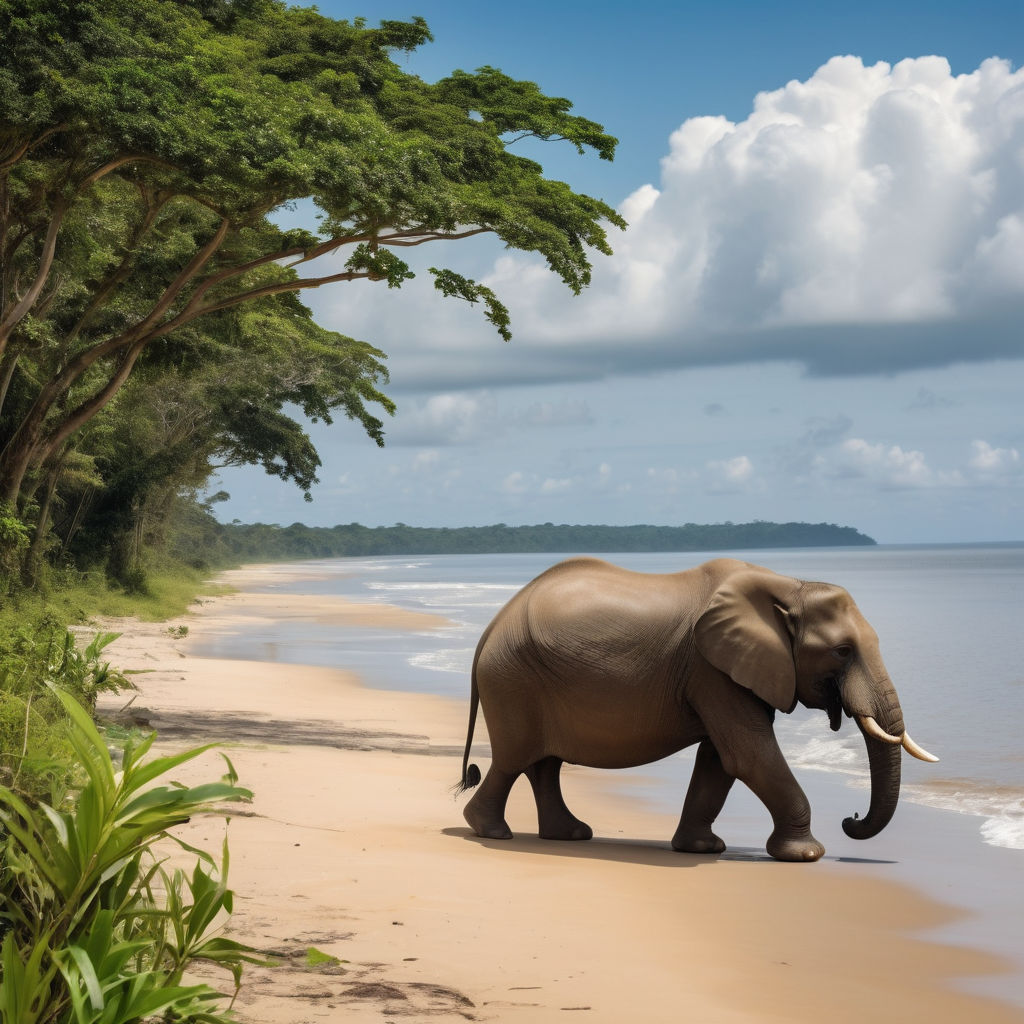Introduction to Gabon: Culture, History, and Modern Insights
Discover the Rich Cultural Heritage and Modern Life of Gabon

Introduction to Gabon
Gabon, officially known as the Gabonese Republic, is a country located on the west coast of Central Africa. It is bordered by Equatorial Guinea to the northwest, Cameroon to the north, the Republic of the Congo to the east and south, and the Atlantic Ocean to the west. The capital city, Libreville, is the largest urban center and serves as the political, economic, and cultural heart of the nation. Other significant cities include Port-Gentil, Franceville, and Oyem. Gabon boasts a rich cultural heritage that reflects its diverse ethnic groups, including the Fang, Punu, and Nzebi. This cultural diversity is evident in the country’s music, dance, festivals, and traditional crafts. Gabon is also home to vast rainforests, numerous wildlife species, and national parks that cover nearly 11% of the country, making it a biodiversity hotspot. Traditional music, including the use of the mvet (a stringed instrument) and the ngombi (a harp), along with dances like the iboga rituals, are integral parts of Gabonese culture. The country’s cuisine, featuring dishes like nyembwe chicken (chicken with palm nut sauce) and manioc, reflects its agricultural practices and coastal living.
Cross-national and Cross-cultural Understanding
Gabonese people generally exhibit a welcoming and open attitude towards other cultures, influenced by their country's history of trade, colonization, and contemporary globalization. The people of Gabon value cross-cultural understanding and actively engage in cultural exchanges, educational programs, and international partnerships that promote mutual respect and learning. Cultural exchanges play a significant role in fostering cross-cultural understanding in Gabon. The country hosts various festivals and events that celebrate both local and international traditions. For instance, the Gabon International Film Festival attracts filmmakers and audiences from around the world, promoting cultural exchange through cinema. Additionally, Gabon’s participation in regional organizations such as the Economic Community of Central African States (ECCAS) facilitates cultural and educational exchanges. Educational programs in Gabon emphasize global awareness and cross-cultural understanding. Schools and universities incorporate multicultural perspectives into their curricula, encouraging students to appreciate and respect diversity. The University of Omar Bongo in Libreville collaborates with international institutions to facilitate student and faculty exchanges, enriching the educational experience and fostering global connections.
Interactions and Social Dynamics
Typical interactions between Gabonese people and foreigners are characterized by warmth, respect, and a strong sense of community. Social behaviors in Gabon reflect a blend of traditional customs and contemporary influences, emphasizing respect for others, hospitality, and communal living. Communication styles in Gabon are generally informal and friendly. French is the official language, but several indigenous languages, including Fang, Myene, and Nzebi, are also widely spoken. This multilingualism facilitates interactions with tourists and expatriates, making it easier for them to integrate into the local community. Cultural norms in Gabon place a strong emphasis on respect for elders, community involvement, and a relaxed approach to time. These norms create a welcoming and inclusive atmosphere for foreigners, who often find it easy to adapt to the local way of life. Public displays of affection are generally modest, reflecting the country’s traditional values, but social gatherings and communal activities are vibrant and inclusive.
Views on Dating and Relationships
Attitudes towards dating and relationships with foreigners in Gabon are generally open and accepting, though influenced by cultural and traditional norms. Gabonese people recognize the opportunities for cultural exchange and personal growth that such relationships can bring. However, traditional customs and values play a significant role in shaping these views. Family involvement is significant in relationships in Gabon, with elders often playing a crucial role in the approval process. Traditional customs emphasize respect, patience, and the gradual building of trust in relationships. While modern dating practices influenced by global trends are becoming more common among younger generations, traditional values still hold sway in many communities.
Marriage and Family
Marrying a foreigner in Gabon involves navigating both legal and social considerations. Legally, the country has clear regulations governing marriage, including residency requirements and the need for proper documentation. Socially, cross-cultural marriages are generally accepted, though couples may face challenges related to cultural differences and integration. Familial acceptance is a key factor in cross-cultural marriages. Gabonese families can be protective, and gaining their approval is often essential for the relationship's success. However, the diverse cultural landscape of Gabon means that many families are already familiar with and accepting of different cultural backgrounds, which can facilitate smoother integration for foreign spouses. Trends in cross-cultural marriages reflect Gabon’s open and inclusive society. Many Gabonese who travel abroad for education or work form relationships with individuals from various cultures, bringing back diverse customs and traditions that enrich the local community.